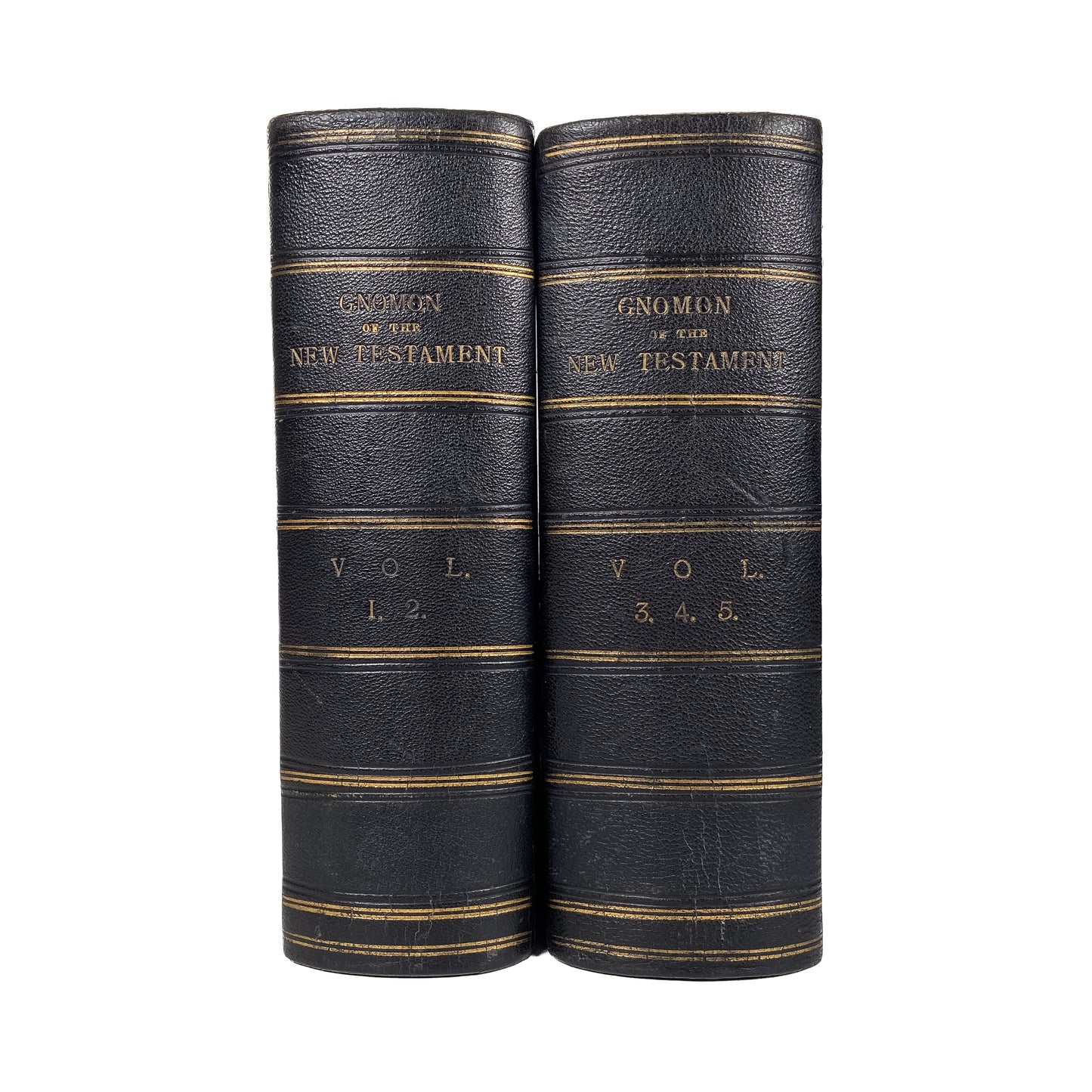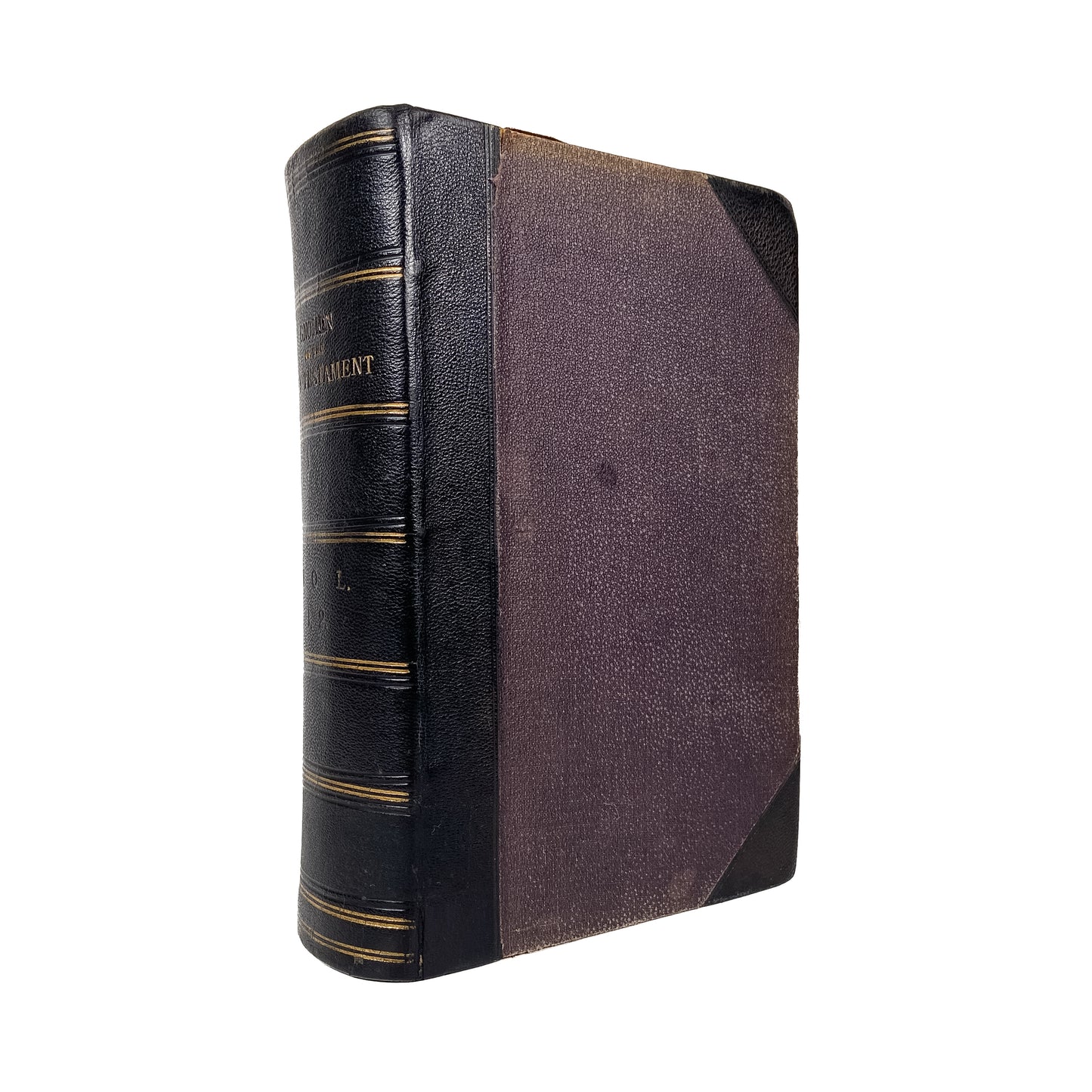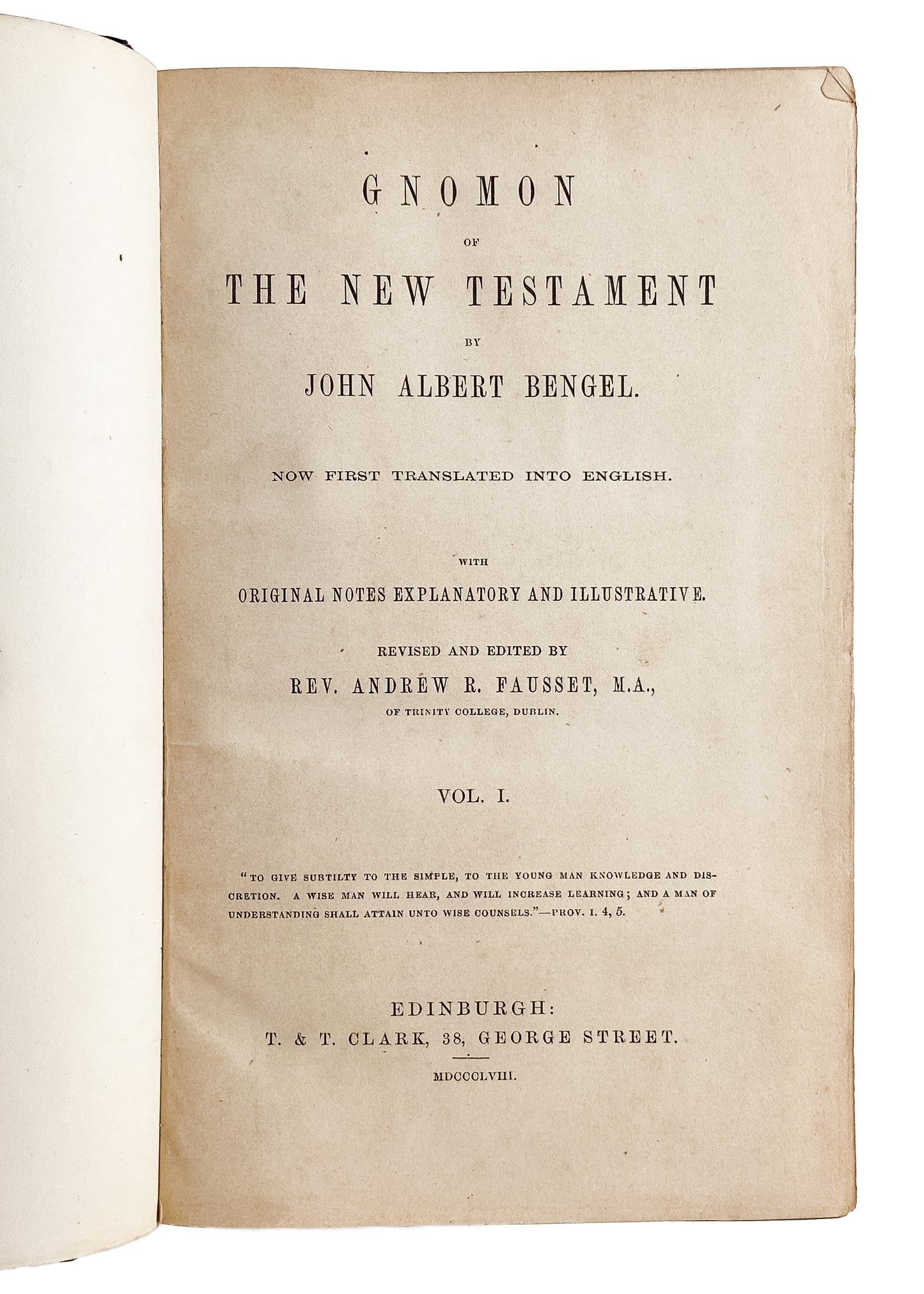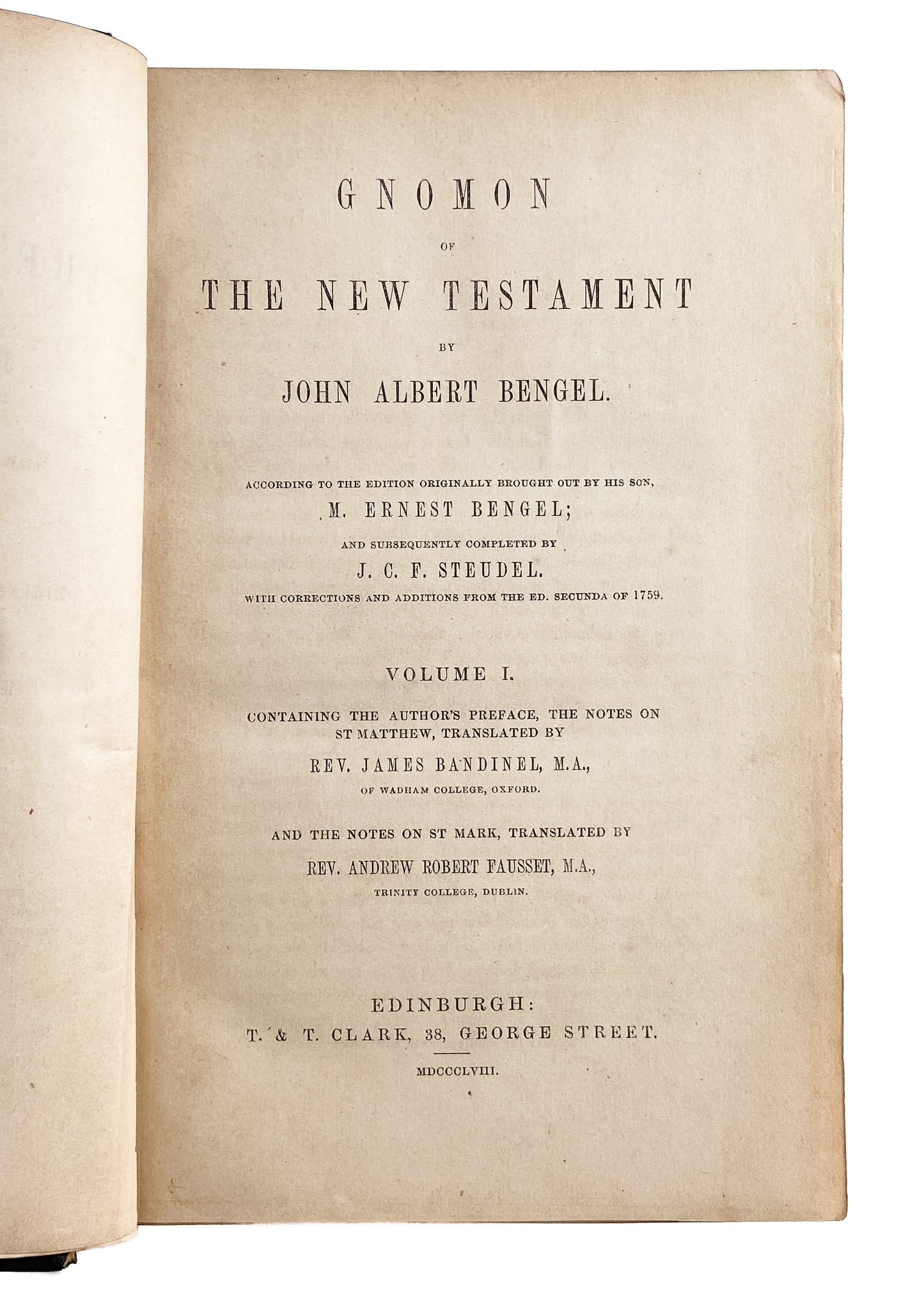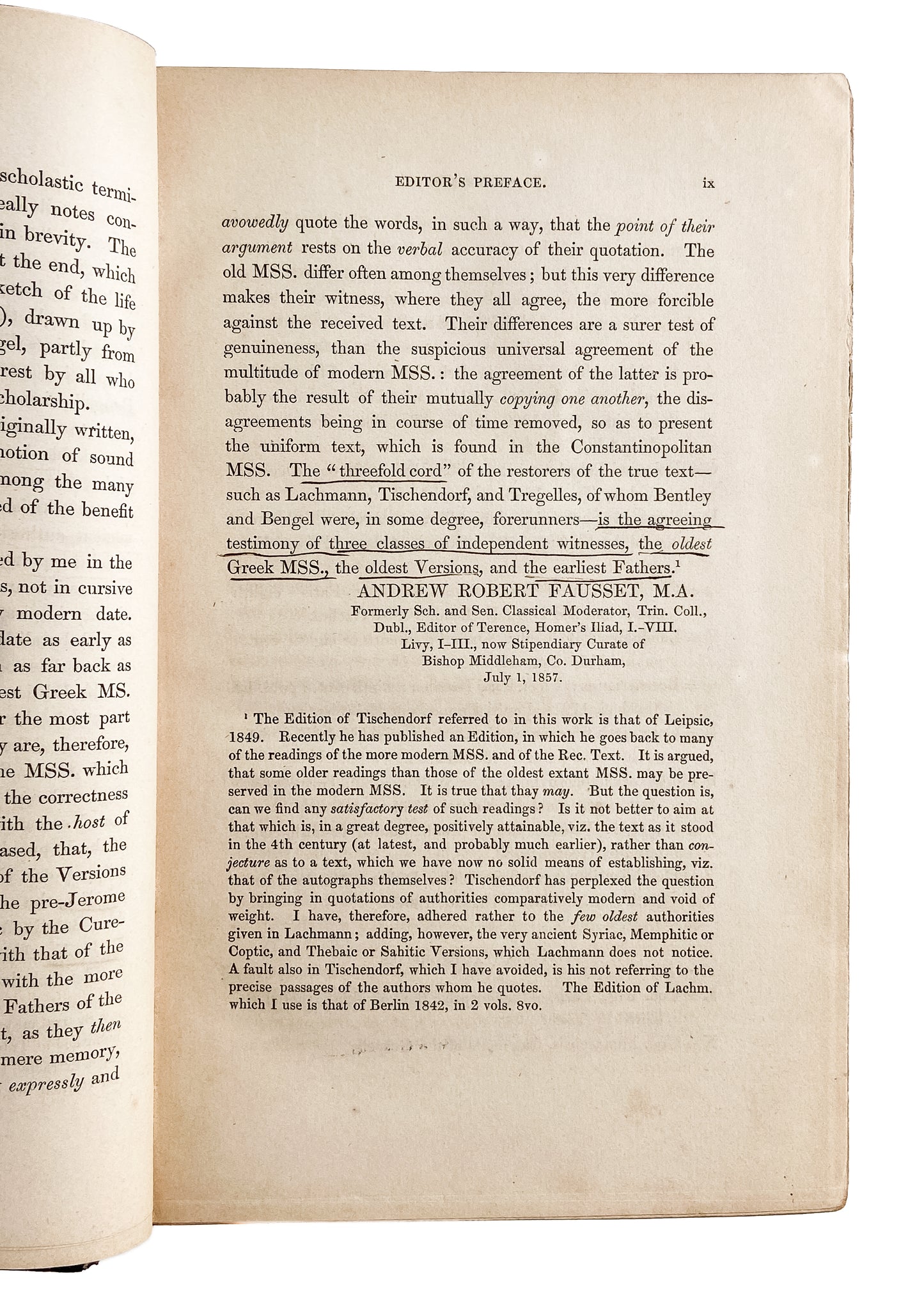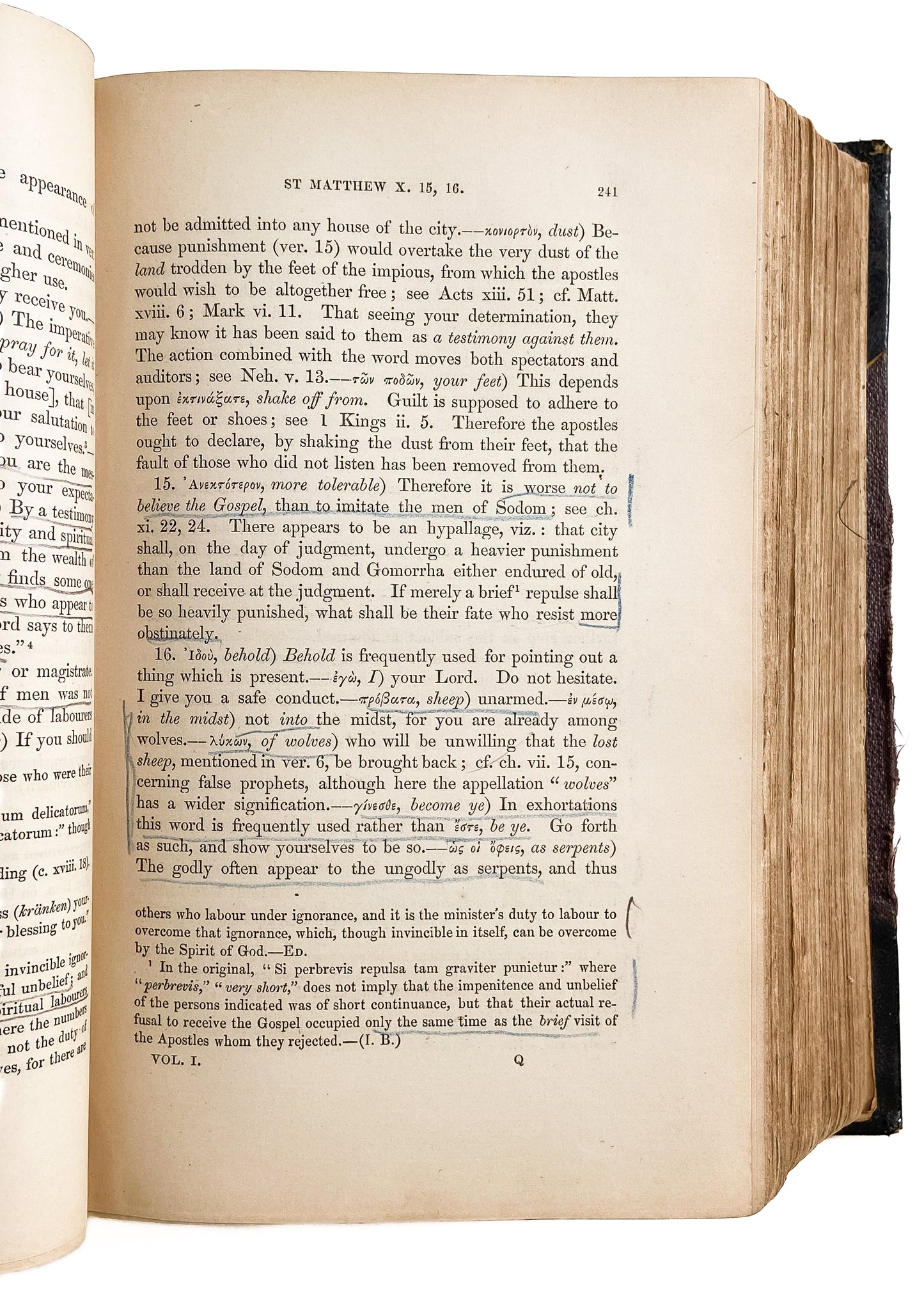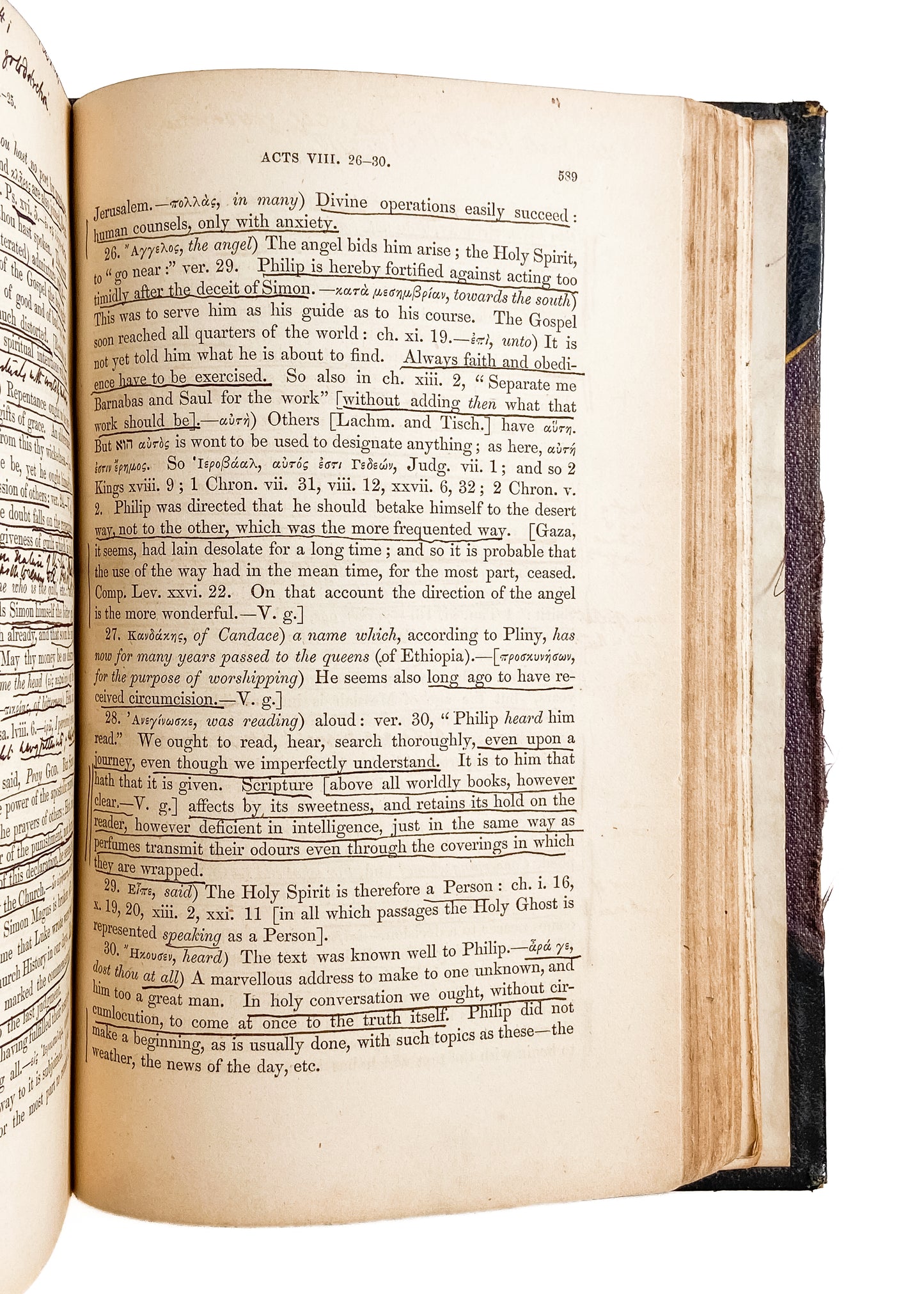Specs Fine Books
1858 JOHN ALBERT BENGEL. Gnomon of the New Testament. Nice Leather - Spurgeon Rec.
1858 JOHN ALBERT BENGEL. Gnomon of the New Testament. Nice Leather - Spurgeon Rec.
Couldn't load pickup availability
An imposing, well-preserved first English edition in half leather set of one of Spurgeon's most highly commended academic works.
"The Gnomon of the New Testament, By John Albert Bengel, is the scholar's delight. He selected the title as modest and appropriate, intending it in the sense of a pointer or indicator, like the sundial; his aim being to point out or indicate the full force and meaning of the words and sentences of the New Testament. He endeavours to let the text itself cast its shadow on his page, believing with Luther that "the science of theology is nothing else but grammar exercised on the words of the Holy Spirit". "It is quite superfluous to write in praise of the Gnomon of Bengel. Ever since the year in which it was first published, A.D. 1742, up to the present time, it has been growing in estimation, and has been more and more widely circulated among the scholars of all countries. Though modern criticism has furnished many valuable additions to our materials for New Testament exegesis, yet, in some respects, Bengel stands out still `facile princeps' among all who have laboured, or who as yet labour in that important field. He is unrivalled in felicitous brevity, combined with what seldom accompanies that excellence, namely, perspicuity. Terse, weighty, and suggestive, he often, as a modern writer observes, `condenses more matter into a line, than can be extracted from pages of other writers.'" ..... "In the passages which form the subject of controversy between Calvinists and Arminians, Bengel takes the view adopted by the latter, and in this respect I do not concur with him. But whilst he thus gives an undue prominence, as it would seem to me, to the responsibility and freedom of man in these passages, yet, in the general tenor of his work, there breathe such a holy reverence for God's sovereignty, and such spiritual unction, that the most extreme Calvinist would, for the most part, be unable to discover to what section of opinions he attached himself, and as to the controverted passages would feel inclined to say, `Quum talis sis, utinam noster esses.'"
Men with a dislike for thinking had better not purchase these precious volumes, for they will be of little use to them; but men who love brain work will find fine exercise in spelling out the deep meaning of Bengel's excessively terse sentences. His principles of interpretation stated in his "Essay on the Right Way of Handling Divine Subjects", are such as will make the lover of God's word feel safe in his hands: `Put nothing into the Scriptures, but draw everything from them, and suffer nothing to remain hidden, that is really in them." "Though each inspired writer has his own manner and style, one and the same Spirit breathes through all, one grand idea pervades all." "Every divine communication carries (like the diamond) its own light with it, thus showing whence it comes; no touchstone is required to discriminate it." "The true commentator will fasten his primary attention on the letter (literal meaning), but never forget that the Spirit must equally accompany him; at the same time we must never devise a more spiritual meaning for Scripture passages than the Holy Spirit intended." "The historical matters of Scripture, both narrative and prophecy, constitute as it were the bones of its system, whereas the spiritual matters are as its muscles, blood vessels, and nerves. As the bones are necessary to the human system, so Scripture must have its historical matters. The expositor who nullifies the historical ground work of Scripture for the sake of finding only spiritual truths everywhere, brings death on all correct interpretations. Those expositions are the safest which keep closest to the text."
His idea of the true mode of dying touched me much when I first saw it. He declared that he would make no spiritual parade of his last hours, but if possible continue at his usual works, and depart this life as a person in the midst of business leaves the room to attend to a knock at the door. Accordingly he was occupied with the correction of his proof sheets as at other times, and the last messenger summoned him to his rest while his hands were full. This reveals a calm, well balanced mind, and unveils many of those singular characteristics which enabled him to become the laborious recensor of the various M.S.S., and the pioneer of true Biblical criticism. [Commenting and Commentaries, C. H. Spurgeon]
Bengel, John Albert. Gnomon of the New Testament by John Albert Bengel. Now First Translated into English. With Original Notes Explanatory and Illustrative. Revised and Edited by A. R. Fausset. Complete in Two Volumes. Edinburgh. T. & T. Clarke. 1858.
Two large 4to half leather volumes. Very handsome with minor remainder of label at base of spine, cloth on boards rubbed, just through at points. Very solid and clean and looking very spiffy indeed on the shelf.
Share
